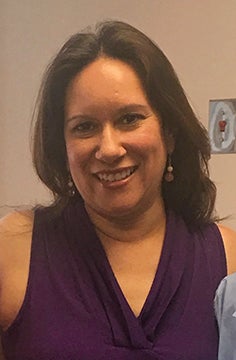Nalini Joseph: Make your child’s path to greatness a musical one
Published 12:10 am Sunday, November 15, 2020
By Nalini Joseph
I always knew there was a strong connection between learning to play an instrument and a child’s high performance in school, but I wanted to confirm this opinion by talking with someone who is an expert in the field of music.
I had the pleasure of talking with Marguerite Keller, who teaches violin to many of our Salisbury youngsters. She also plays violin in the Salisbury Symphony Orchestra. Marguerite studied and played piano for 12 years, beginning at the age of 8. She also has enjoyed violin for 45 years, teaching violin for over 40 years. She was gifted with some of the most prolific violin instructors in the nation and combines three major inputs from direct training: the Rolland approach, the Galamian approach and the Suzuki approach.
Marguerite taught me more about the relationship between music and children’s achievements in school and in life. I’d like to share some highlights of my conversation with her.
Countless studies have been conducted on the correlation between students who study music and their rates of academic success. For example, in the late 1980s, when the development of magnetic resonance imaging (MRI) was in its infancy, an Ivy League university conducted a study on individuals who possessed certified (or absolute) perfect pitch. These subjects over and over again proved that they had higher development in a specific region of the brain. Numerous studies have shown a correlation between music study and an increase in performance in language and math. When learning an instrument, a person learns fine motor coordination; each hand is engaged in a different movement. This activity takes concentration, exercising the brain in an unusual way. A study in Basel, Switzerland, showed how greater fine motor development helps the red nucleus region of the brain reorganize itself in beneficial ways. Another research study at the University of Southern California showed a definite link between learning an instrument and higher rates of achievement in language and reading.
Learning an instrument works on focus, memory and of course, discipline. Music increases self-confidence: it elevates mood and alertness. However, not all kinds of music have beneficial effects on an individual. When thinking about what kind of music you and your child should listen to or study, think of composers like Brahms, J.S. Bach and Dvorak. Remember the controversial Mozart effect study? Students who listened to Mozart while studying reported higher achievement levels, attributing their success to the Mozart pieces that were playing in the background.
What does this mean for individuals who wish to increase their mental capacities, thus increasing their overall achievement levels in life? What does this mean for parents of children who already have their child learning a musical instrument?
Here are some pointers from Marguerite:
1. Listen to classical music often. Listen to it when you wake up in the morning and when you’re riding in the car.
2. Choose artists that possess good tone and intonation, who possess artistic dynamics and bravado.
3. Instead of focusing on the fifteen or 20 minutes of time needed for practice, focus on listening and showing interest while your child practices their instrument. Parents must enforce the process of learning an instrument, and a good way to do this is by role modeling your enthusiasm for the study of music.
4. Allow your child to work on just one skill at a time (such as tone) rather than trying to get through the piece from beginning to end.
5. Make practice time fun – at times, allow your child to improvise, clown around, or play familiar tunes.
6. Rote discipline is necessary and important. However, your child should spend just one or two minutes on a musical phrase or bar of music. Like any other strenuous activity, repetition with the amount of concentration that is required for each movement can be exhausting. However, this disciplined repetition will help your child achieve perfection.
Music programs in schools should not be viewed as a luxury course of study. Music is essential to a child’s social, academic and mental growth. Children who play in orchestras or in small ensembles find themselves having fun with their peers while strengthening their mental capabilities. Music study is a win-win for parents, children and for all who listen to the sounds made by our young musical artists.
Nalini Joseph is a resident of Salisbury. She is the proud mother of 10-year honor-roll student, Rohan Joseph. Email her at nalinijones1@hotmail.com.



